While Halloween was celebrated in the Northern America, the Pacific Whale Foundation (PWF) research team stationed in Australia had their last day in the field in Eden, New South Wales. The day was made even more special by the presence of the replica of the HMS Endeavour, a British Royal Navy research vessel that Lieutenant James Cook commanded on his first voyage of discovery to Australia and New Zealand from 1769 to 1771.
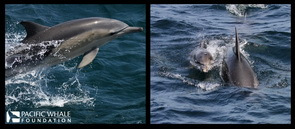
Common dolphin and bottlenose dolphins. Photos taken under permit SL100195. 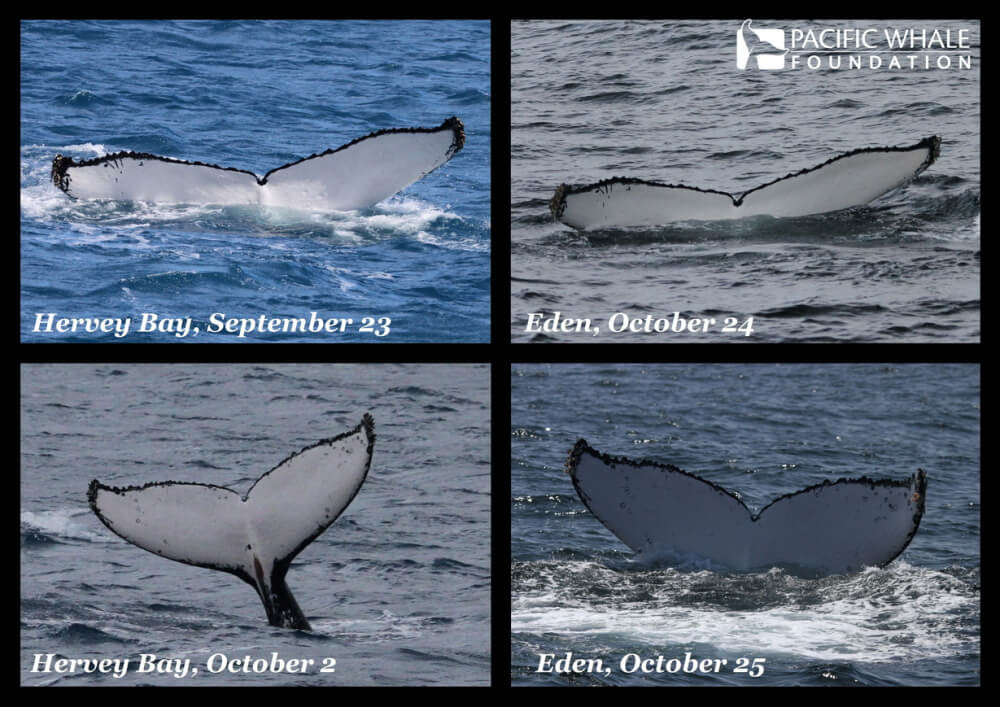
Resights between Hervey Bay and Eden in 2014. Photos taken under permits; QLD: QS2011/GS040, registration #307; NSW: SL100195. 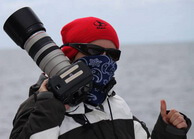
Photo credit” Rosalind Butt. 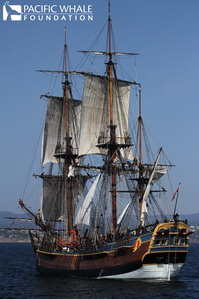
HMS Endeavour 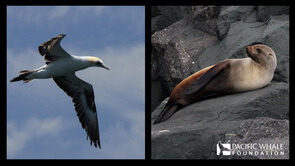
Australasian gannet and Australian fur seal. 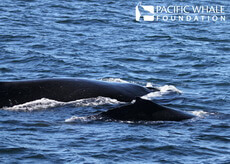
Mother-calf pair. Photos taken under permit SL100195. 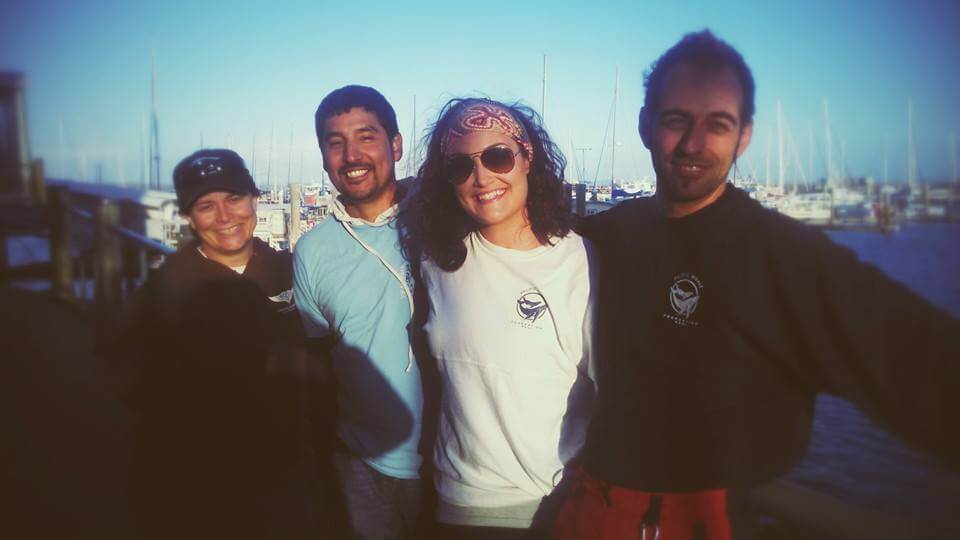
From left to right: Manue Martinez, Tizoc Garcia, Dani Barbknecht, and Lorenzo Fiori.
After spending 9 weeks in Hervey Bay, two of our Research Assistants drove the 1,700 km (1,055 miles) south to Eden for an additional 3 weeks to collect more data on the humpback whales as they migrate south to their Antarctic feeding grounds. It was with great pleasure that we met Cat Balou owners, Rosalind and Gordon Butt, and their crew, who have been supporting the PWF research team for decades.
Eden is a beautiful place, with a wild coastline and rich marine life, including whales, dolphins, seals, and many bird species.
It is also colder than Hervey Bay, especially when the south-easterly or south-westerly winds start to blow. A few extra layers of clothing were often required.
Overall, the research team had a very successful whale season, covering just over 5,500 miles, the equivalent of the distance between Quebec City in Canada and Santiago in Chile!
The team spent 514 hours on the water and managed to take 332 flukes photo for photo-identification purposes. Each of these photo received a within season ID. Photos that will meet the quality criteria will then be matched with the PWF Australian photo-id catalog that contains more than 6,000 individuals. When comparing the within season photo-ids between Hervey Bay and Eden, 6 matches were made, indicating that humpback whales did the journey south between 20 (adult) and 35 days (mother-calf pairs).
The team also recorded just over 150 sightings of dolphins, mainly bottlenose dolphins in Hervey Bay and common dolphins in Eden. Bottlenose dolphins were present in both locations.
The 2014 whale season was quite different from the 2013 season. While it is challenging to compare data collected in Hervey Bay as two different platforms were used to collect data (research vessel vs tour boats), it was more obvious in Eden that less whales were encountered this season, including mother-calf pairs. As a testament to this, we often had to travel further to find the whales. This observation appears to be supported by other colleagues along the humpback whale migration route. To be sure, the team will analyze the data over the next few months.
PWF research team is very grateful to the owners and crew of Shayla, Blue Dolphin, and Amaroo in Hervey Bay and of Cat Balou in Eden for their support over the past three months, by welcoming us on their whale-watching vessel to collect opportunistic data. We are looking forward to the 2015 whale season in Australia and seeing what it will bring.

